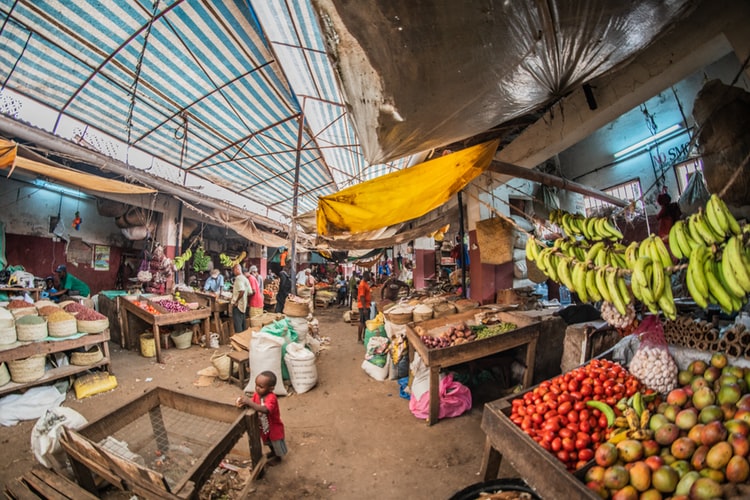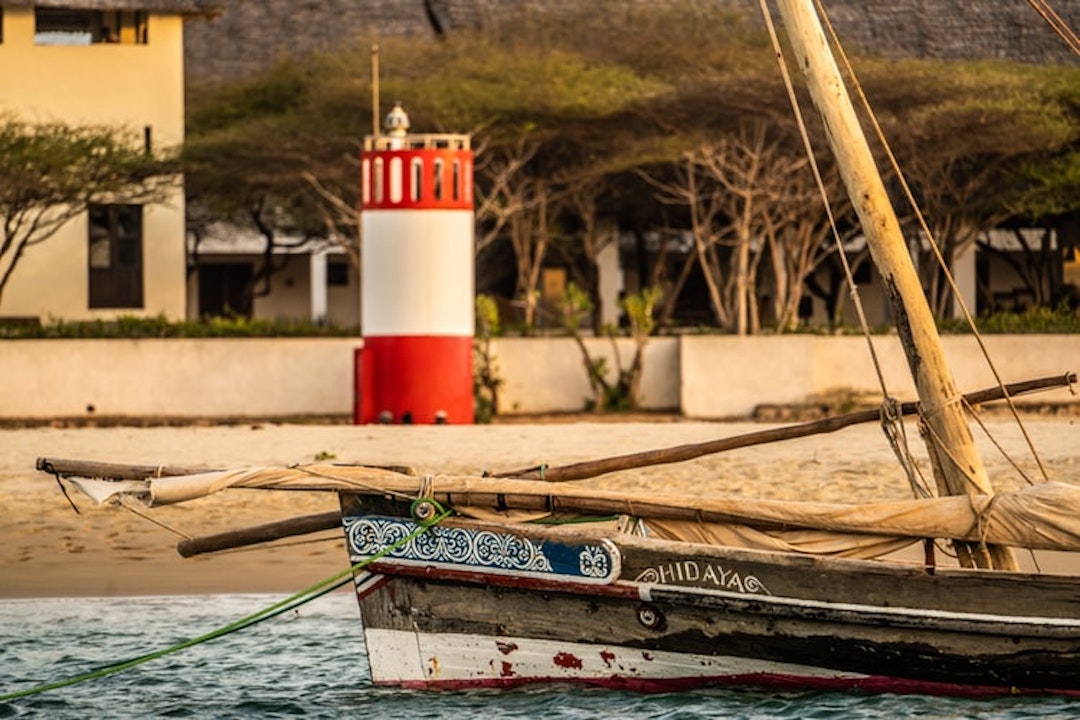This story was created in partnership with: Kenya Tourism Board
Clued-in travellers have already experienced Kenya, but for the rest of us, this East African country alongside the coast of the Indian Ocean is only now making waves. The Kenyan wilderness has attracted safari enthusiasts for decades, after all, it’s home to the famous Masai Mara National Reserve.
Yet, there’s so much more to this country than breathtaking savannah and wildlife. The cities, traditions, and legacy of the peoples, culture and history are all part of Kenya’s story. To learn more about it, we spoke to Kulpreet Chadha, a 5th generation Kenyan of Indian origin and Sama Abdi, who also grew up in Kenya. She’s the Social Media Manager at TourRadar, and — as she would say — knows all the cute spots in Kenya for Instagram (like the flamingos at Nakuru Lake, for example.)

What are some essential things I should know about Kenya’s major cities and communities?
KULPREET: The major cities are Nairobi, Mombasa, Kisumu and Eldoret.
I lived in Nairobi during my college years and it’s a lovely city, even though it’s got a bit of a reputation for pickpocketing. If you wander the neighbourhoods you’ll get a sense of how much the city changes from one district to the next. If you love wildlife, then a visit to the Giraffe Centre is a must — it was established to protect the endangered giraffe, found only in the grasslands of East Africa.
Mombasa is my favourite place during a Kenyan winter (June to August). It’s so relaxing and the perfect place to be when everywhere else is brrr. As an adult I spent a couple of years in this city.

I was born in Kisumu. This city has a politically-centric air to it, is always warm and has seafood in abundance thanks to Lake Victoria. In fact, there are lots of tourist attractions by the lake; my hometown of Kericho was only an hour’s drive away from the lake so we often went there.
Eldoret is the land of milk and honey (the city has lots of dairy and honey farms) and home to our world-renowned marathon runners! I worked there as a veterinary clinic manager for almost two years, it’s not a big city, but I loved the people, the weather and the vibe there.
Besides safari, what else does Kenya have to offer?
SAMA: The country has amazing food – and while that may not be specific to Kenyan cuisine, you’ll find good food from around the world because a lot of expats live there. It’s also really fresh – especially the fruit and vegetables! Growing up we had a banana tree, and the bananas tasted beautiful.

Kenya also has an amazing vibe and culture. It’s so vibrant. People are very nice and very welcoming and want to share their culture with you. Whether that’s through their hospitality, tribal traditions or history. One of the main things about Kenya is there are obviously those bucket list destinations, Mombasa and Masai Mara, but there’s so much beauty beyond that. The Great Rift Valley is absolutely gorgeous, I went there as a child. Mount Kenya is also cute. Kilimanjaro is not the only mountain worth climbing in Africa!
KULPREET: There are so many things you can do! It really depends on interests, but you could learn things like pottery from the Kisii, basket weaving from the Luo, tea picking and milk fermentation from the Kipsigis, running races from the Nandi, beadwork and foraging skills from the Maasai, farming and business from the Kikuyu, or learn how to grow weed (bhangi) from the Meru to name a few.

If you are into philanthropy there are lots of non-governmental organisations and community-based organisations looking for volunteers and donations. Just be smart and do proper research before joining any. My family has the trend of going directly to orphanages and schools to find families to volunteer with.
What mistakes do a lot of first-time travellers make when they visit Kenya?
SAMA: First-time travellers assume there will be a lot of poverty. Kanya has its issues, but once you get there you don’t feel like you’re in a developing nation. When I first moved to the country, I’d only heard of what people had told me (that it’s poor and dusty), but it was completely different to what I expected. I didn’t see Kenya that way at all, it’s a place with endless nature and so many cool things to do.
KULPREET: Kenyans are very friendly, but of course, there are a few rotten apples in every society, so just be street smart and mistakes will be few and far between!
But in general, a lot of first-time travellers dish out too much money! Don’t display your riches or show too much affection and dislike for anyone. The fussier one gets, the more expensive things get. Bargain! Yes, please bargain before you buy anything, except for in restaurants and big shopping malls.

And make sure you carry bottled water. You don’t have to survive on mineral water; if you boil it correctly and store water in clean containers, you’ll be fine! Remember to try the fresh fruit and vegetables which are available everywhere.
What’s the climate like? Do you have a favourite season?
SAMA: I would say that every season is amazing in Kenya, except for rainy season. It’s not terrible, but there can be torrential down pours. But throughout the rest of the year, it’s nice and warm and there’s always a breeze. Kenya is not as humid as North America, for some reason.
KULPREET: I like the weather all year-round too, except for June and July when the rain is the heaviest and the weather is the coldest. December is normally the hottest, and of course, there are short rains in March and April. Just remember, when it is winter in North America, it is summer there and vice versa.
What are the biggest cultural differences between major North American cities and the cities in Kenya?
SAMA: The malls, shopping establishments, grocery stores, and things like that are very different. It’s not uncommon to buy fresh fruit or bread from a street stall or a roadside kiosk. That’s not to say you can’t go to a grocery store for those things, but it’s easier.
There’s a very relaxed vibe in Kenya. You don’t really feel that way in North America, for example, even when you do go for a post-work drink on the weekend, you’re still very much tapped in. However, in Kenya, you’re encouraged to enjoy nature and everything that is available to you, from the sunlight to the good times and food.
KULPREET: The biggest cultural difference is respect. There is more understanding of privacy here in the west but from my experience, the Kenyans are way more respectful, kind and polite to others. They don’t think about themselves first, they teach a communal way of living, sharing and caring for each other.
How do the locals spend their weekends?
SAMA: A lot of locals hit the beaches or malls or head to the Maasai markets. Their location changes every week, but you can find all sorts of traditional Maasai things, from art to trinkets. We would usually go hiking or hit the waterparks. Sometimes we would take a little weekend trip to Stone Town in Tanzania or head to Lamu, an island just off the coast. It’s the best island in Kenya, maybe even on earth.

KULPREET: This depends on their religion and location. Most well-to-do city dwellers go out to fancy restaurants and recreational places. The small towners are a mixed bunch. Some go out and chill at bars and restaurants, some like to stay at home and relax and some make a trip to their villages to see their family and farmlands. The villagers work on their farms as needed.
Can you share any off-the-radar experiences in Kenya that you fell in love with while living there?
SAMA: One thing that I personally loved about Kenya is that you can cross the equator there. It’s a really simple thing you can go and do, and there are tour groups that will take you there. It’s definitely an activity worth doing because not many countries have the equator line directly in between them, so it’s not something you can do in a lot of places. It’s not one of those breathtaking encounters or anything, but it is cool to stand on both sides of the equator.
KULPREET: I have vivid memories of Kenya. For one, being chased by an elephant in Masai Mara while camping (although I don’t recommend trying this)! I loved eating various kinds of meats and wild bush plants – highly recommend doing that. Riding motorcycles with the wind on my face in remote areas where that was the only mode of transport. If you can do that, it’s incredible.

For me, living like a true Kipsigis villager was the experience of a lifetime. It was lovely to feel so carefree. To walk barefoot in the lush green grass, herding the cattle, sheep and goats, and picking wild fruits. After milking cows by hand we would prepare the gourd to ferment milk and make mursik (fermented milk) and then have ugali (cornmeal porridge) and mursik as a meal while an elderly grandmother tells you stories.
At night we slept on animal skins with a bonfire in the pit for warmth, the lovely colours exuding from the fire, with the crackling of wood sticks lulling me to sleep. Try getting that experience anywhere else!
A little more about our contributors…
Sama Abdi was born in Djibouti and raised in Toronto and Kenya. After her mother was offered a job with UNICEF, their family moved to Kenya in 1996. After living there for nine years, at the age of fourteen, she moved back to Toronto in 2005 with her family and has been been living there since.
Kulpreet Chadha was born in Kisumu and raised in a small town called Kericho. Her great great grandfather came to Kenya in the early 1900s as a prison guard. Her father and mother still live in Kenya and own a restaurant called Kimugu River Lodge Ltd. Chadha lived in the country until 2011, after which she moved to Canada and has been living there since.


